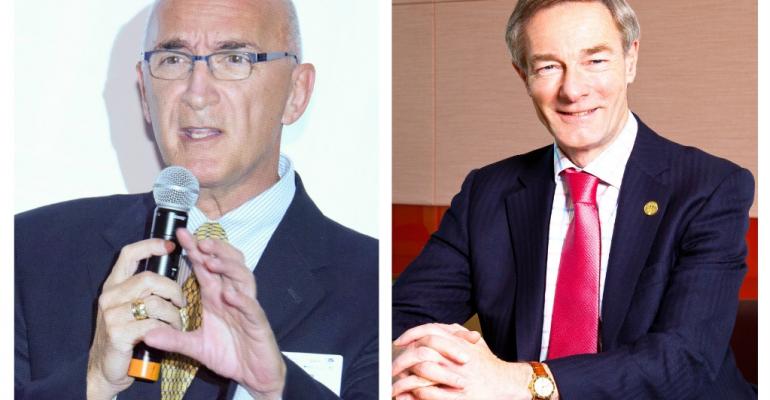Speaking at the Future of Cruising in Europe session at Seatrade Cruise Global 2017, the ceo of Celestyal Cruises said: 'There were numerous terrorist attacks, a migrant crisis and continuous upheaval in Turkey but the market still grew by 3.4%, a larger increase than in 2015.
‘Europe’s largest source market Germany topped 2m for the first time but the UK still has the highest penetration (2.7%) with Germany next. But the third most penetrated market is Norway followed by Switzerland so, while we always talk about the five largest European markets (Germany, UK, Italy, France, Spain), a tremendous amount of work is also being done to establish cruising in other European markets.
‘But among half of Europe’s 700m-plus population cruise penetration is just 1% and it is the potential to increase this to 2%, 3% or even 4% that is driving the industry to make tremendous investments in newbuilds with a record number of ships currently on order,’ he noted.
But he also flagged up the growing problem of congestion in marquee ports and also the environmental challenges facing the industry in Europe.
Carnival UK chairman David Dingle warned that there was still ‘much work to done’ to enable cruise lines to comply with new rules for wastewater dispersal in the Baltic Sea following its designation as a Special Area.
These rules are that blackwater (treated as well as untreated) must not be ejected into the sea from 2019 (by new ships) and from 2021 (by existing ships).
Dingle explained the nature of the challenge: ‘A large ship (140,000gt with 3,500 passengers) generates a huge amount of such water and, to exacerbate the problem, about 30% of the ships operating in the Baltic co-mingle black and grey water meaning the whole lot has to be pumped out.’
The Baltic states have made assurances that there would – by the deadlines – be adequate port reception facilities(PRF) in place but Dingle said: ‘With four years to go, CLIA has just run a simulation exercise to test the current adequacy. The full results are to be published shortly but even in the ports which have made great progress, there are some operational challenges including the time it is taking to make the necessary connections.
‘The big ships really need to be pumping for the whole duration of their port stay so an hour spent messing about to get the connections in place is valuable time lost The fees being charged are also very high so we will need to review this with ports so that sensible charges can be introduced when the full facilities are up and running.
‘Some ports were also completely reliant on trucks and barges which is a very slow, inadequate process and any port which thinks it can get away with this is mistaken. The only solution is to have a proper facility which takes the water directly into the local disposal system. A number of ports are still either short of the required number of facilities or of the necessary pumping capacity.
Skagen Port managing director Willy Hanson agreed with Dingle that, ‘trucks are not a long-term option – a proper dockside facility is the right solution.’
Cruise Baltic director Claus Bodker said: ‘We are constantly telling our ports how important it is to their future cruise calls level that they invest in these facilities and we are also in talks with the EU about possible funding. The cruise lines will not commit to future calls, which is understandable but it does make the business case for such investments a bit risky.’
Copyright © 2024. All rights reserved. Seatrade, a trading name of Informa Markets (UK) Limited. Add Seatrade Cruise News to your Google News feed.


